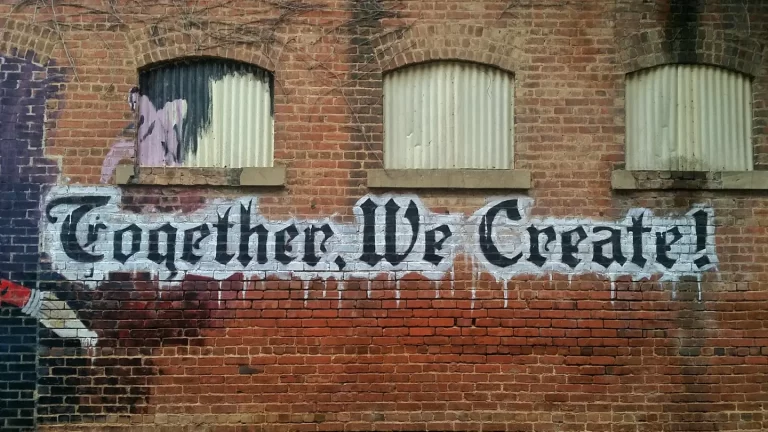Mastering True Stories: The Power of Non-Fiction Writing Workshops
Introduction
Non-fiction writing is a powerful medium that allows authors to communicate real stories, factual accounts, and insightful perspectives with clarity and emotional resonance. From memoirs and personal essays to biographies and feature articles, non-fiction brings readers into authentic experiences and researched narratives. While truth is the foundation of non-fiction, mastery of this genre demands more than just accuracy—it requires structure, storytelling skill, voice, and ethical awareness. This article explores the critical role non-fiction writing workshops play in helping writers refine their craft, find their voice, and shape their ideas into compelling narratives. Whether you’re working on a personal memoir or seeking to enhance your narrative journalism, this guide will help you understand what workshops offer and how to choose the one best suited to your goals.
Understanding Non-Fiction Genres
Non-fiction encompasses a wide range of genres, each serving a distinct purpose and requiring specific writing techniques. Memoirs focus on personal life stories and emotional truth, often reflecting on themes of identity, transformation, or resilience. Biographies and autobiographies explore real lives, using research and narrative structure to give readers a comprehensive view of a person’s journey. Journalism, especially in long-form or feature writing, presents facts and events with narrative engagement, offering context and storytelling to inform and engage.
Other subgenres include personal essays, which pair personal reflection with broader cultural or philosophical themes, and narrative nonfiction, which uses literary techniques—like dialogue, pacing, and character development—to bring factual content to life. Informational nonfiction, on the other hand, includes how-to articles, instructional content, and academic essays that prioritize clarity and accuracy. Understanding the unique demands of these genres helps writers select the right type of workshop tailored to their focus, whether that be expressive storytelling or clear, informative writing.
The Core Objectives of Non-Fiction Writing Workshops
Non-fiction writing workshops aim to empower writers with the tools and feedback necessary to elevate their work. These workshops help participants develop core skills such as effective storytelling, structural coherence, research methods, and ethical writing practices. One of the primary goals is to enhance the writer’s ability to connect with readers while remaining truthful and respectful to the subject matter.
Workshops also emphasize the development of a distinct voice, which is especially important in personal essays or memoirs. Writers benefit from group feedback, instructor critiques, and writing exercises that foster creative and critical thinking. Ethical considerations, such as navigating privacy issues and presenting facts responsibly, are also discussed in depth, particularly for genres that involve real people or sensitive experiences.
Key Elements of an Effective Workshop
An effective non-fiction workshop provides a balanced mix of instruction, practice, and feedback. Writing exercises and prompts encourage experimentation with form, tone, and perspective. Instructors often lead discussions on revision strategies—how to clarify ideas, restructure passages, and polish language for greater impact.
Workshopping, or group critique, is a central feature that builds collaborative learning. Writers read each other’s work and offer constructive, respectful feedback, learning as much from reviewing others’ drafts as they do from revising their own. Many workshops also offer optional sessions on publishing, such as writing query letters, building an author platform, or submitting to literary journals. Instructors who have published or taught extensively bring valuable insights that go beyond the basics of grammar and style, enriching the learning experience.
Workshop Formats and Accessibility
Non-fiction writing workshops are offered in a range of formats to accommodate diverse preferences and schedules. In-person workshops provide real-time engagement, peer camaraderie, and an immersive learning environment. Online workshops offer the flexibility of participating from anywhere, making them accessible to a broader audience—including those with full-time jobs or caregiving responsibilities.
Programs may run from intensive one-day sessions to multi-week courses. Some workshops are general in scope, while others focus on specific genres or writing stages, such as outlining a memoir or revising an essay. Accessibility is an important consideration—many respected programs offer scholarships, tiered pricing, or community-based options to ensure broader participation. Writers should evaluate each offering for its curriculum depth, instructor support, and alignment with their learning goals.
Selecting the Right Workshop for Your Goals
To choose the best workshop for your development, begin with a clear understanding of your writing objectives. Are you starting your first personal essay? Revising a manuscript? Looking for accountability and peer support? Matching your goals with the right program is essential.
Researching the curriculum will help clarify the workshop’s priorities—whether it leans more toward craft, revision, or publishing preparation. Reading instructor bios can also give insight into their teaching style and area of expertise. Smaller workshop sizes often allow for more individualized attention and deeper feedback. The workshop’s environment should encourage respectful dialogue, inclusion, and mutual growth, as these elements are key to a productive and inspiring learning experience.
Benefits Beyond the Writing
Beyond skill development, writing workshops often provide long-term benefits that extend well past the final session. They help writers build a network of peers, instructors, and potential mentors—relationships that can lead to creative partnerships, future collaborations, or opportunities in the publishing world.
Workshops also encourage discipline through structured deadlines, regular feedback, and supportive accountability. Writers often gain confidence by sharing personal stories in a safe, judgment-free space. The experience can be transformative, fostering both creative growth and personal empowerment. Whether your goal is to get published, complete a manuscript, or simply write with greater purpose, workshops provide the momentum and guidance to help you move forward.
Additional Resources for Non-Fiction Writers
Writers looking to deepen their craft beyond the classroom can access a wide range of trusted resources. Books like On Writing Well by William Zinsser and The Art of the Personal Essay by Phillip Lopate offer excellent foundational knowledge and inspiration. Online platforms such as Writer’s Digest, Submittable, and Medium regularly publish articles, guides, and interviews focused on nonfiction techniques and writer development.
Digital communities like Reddit’s r/writing, Absolute Write forums, and Facebook writing groups offer opportunities to connect with peers, share feedback, and seek advice. Podcasts such as The Nonfiction Podcast, Longform, and The Writer Files feature in-depth conversations with experienced writers, offering insights into process and craft. Subscribing to email newsletters from publishing professionals can also keep you up to date on industry trends and opportunities.
Conclusion
Non-fiction writing workshops offer much more than basic instruction—they provide structure, mentorship, community, and inspiration for anyone ready to tell real stories with authenticity and skill. Whether you’re writing to document your life, explore cultural themes, or share researched knowledge, a well-selected workshop can propel you forward. With the right guidance and support, you’ll not only become a better writer—you’ll find new confidence in your voice and your story. By staying committed to learning and connecting with like-minded peers, your nonfiction journey can become both creatively fulfilling and personally transformative.
Key Takeaways
- Workshops Enhance Skill and Voice: Non-fiction writing workshops help writers develop core storytelling techniques, refine structure, and discover their authentic voice while emphasizing ethical storytelling and factual accuracy.
- Genre-Specific Focus Matters: Understanding different non-fiction genres—like memoir, biography, personal essay, and narrative journalism—helps writers choose workshops that match their specific goals and style.
- Learning Formats Are Flexible: Workshops are available both in-person and online, with formats ranging from single-day intensives to extended multi-week programs, making them accessible for writers with varying schedules and commitments.
- Feedback and Community Are Key: Group critiques, instructor insights, and peer collaboration foster creative growth, build confidence, and create lasting support networks that continue beyond the workshop.
- Long-Term Benefits Extend Beyond Writing: In addition to honing craft, workshops provide accountability, industry exposure, and community connections that can support publication goals and personal development.
FAQs
What can I expect to learn in a non-fiction writing workshop?
Non-fiction writing workshops teach essential skills such as narrative structure, voice development, ethical writing, and research techniques. Participants receive feedback, engage in revision exercises, and gain insights into publishing. The focus is on crafting truthful, engaging stories while improving clarity, coherence, and emotional impact.
How do I choose the right non-fiction workshop for my goals?
Start by identifying your specific writing objectives—whether you’re drafting a memoir, revising essays, or seeking publishing support. Review the workshop’s curriculum, instructor background, and format. Smaller groups and focused instruction often provide more tailored feedback, making it easier to grow your craft effectively.
Are online non-fiction writing workshops as effective as in-person ones?
Yes, online workshops can be just as effective as in-person sessions when thoughtfully structured. They offer flexibility, access to diverse instructors, and community support. Look for interactive formats that include feedback sessions, writing exercises, and instructor engagement to ensure a rewarding and productive experience.
Gain clarity in the growing world of self-publishing with this detailed comparison of print-on-demand services ideal for Portuguese writers. Whether you’re printing poetry, novels, or non-fiction, this guide will help you choose the right platform for your publishing success.










